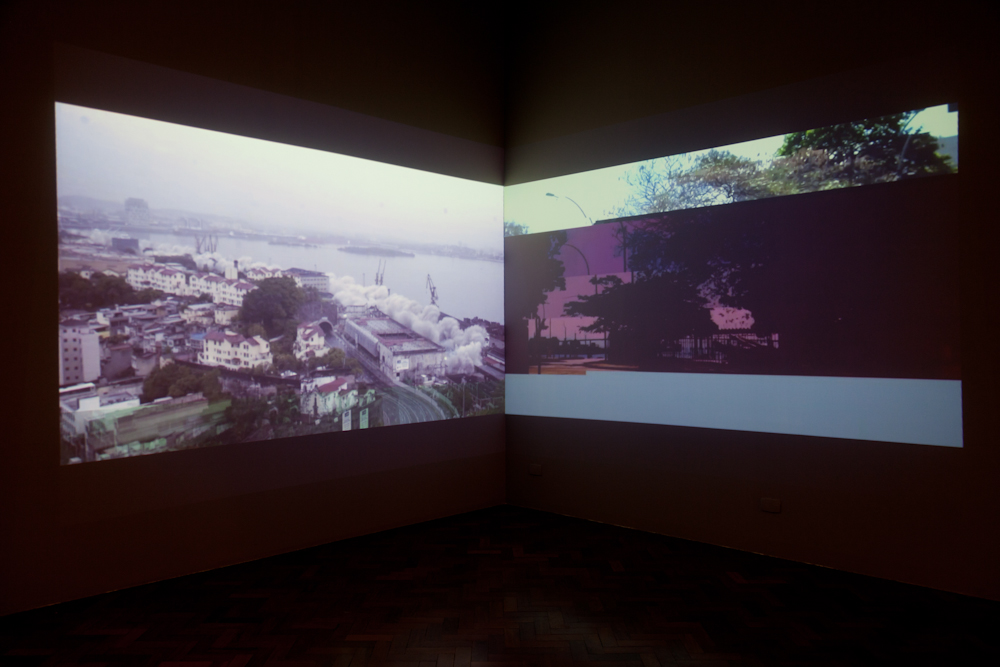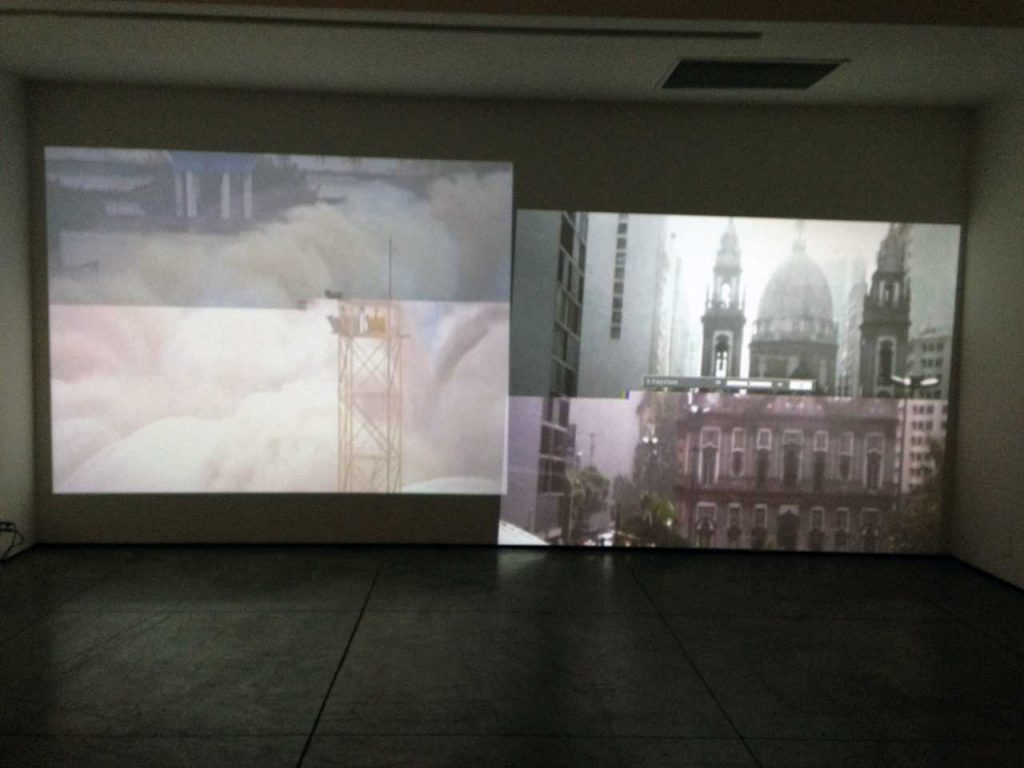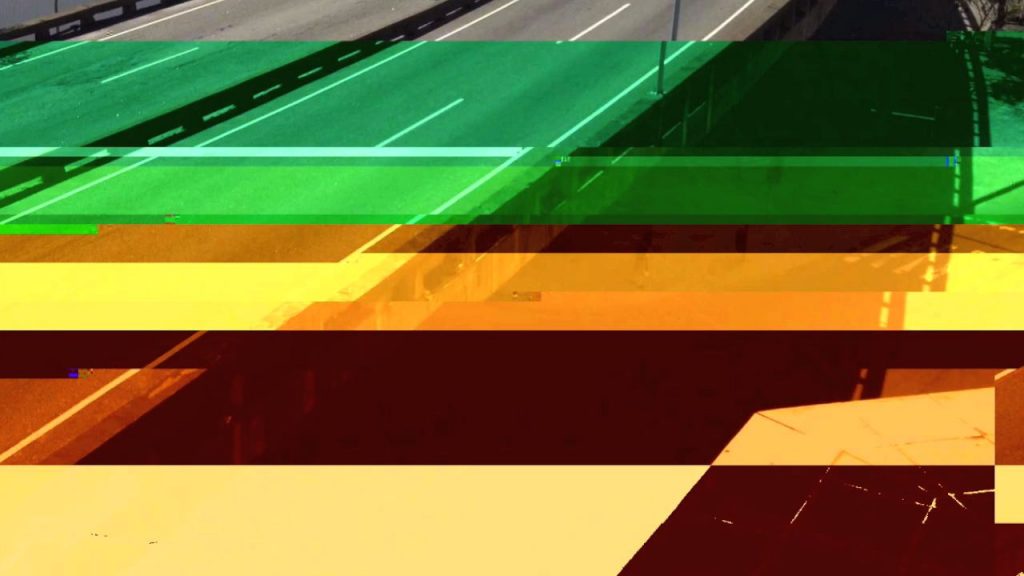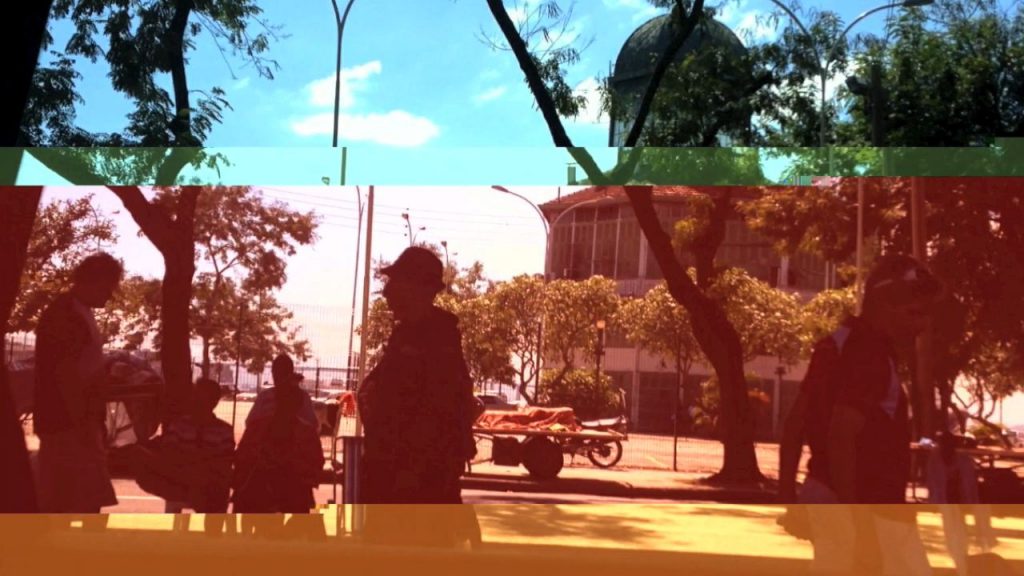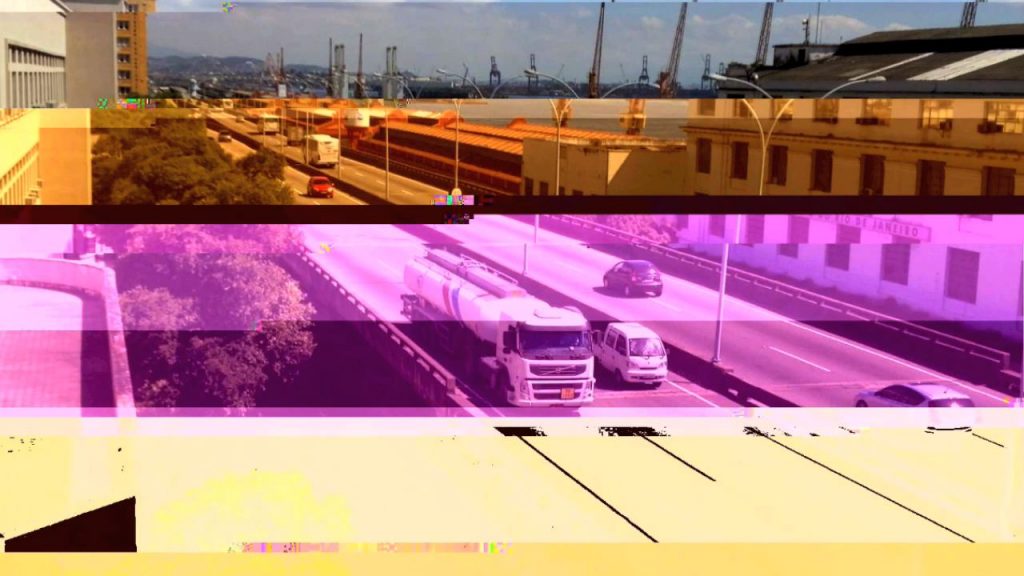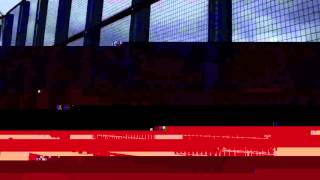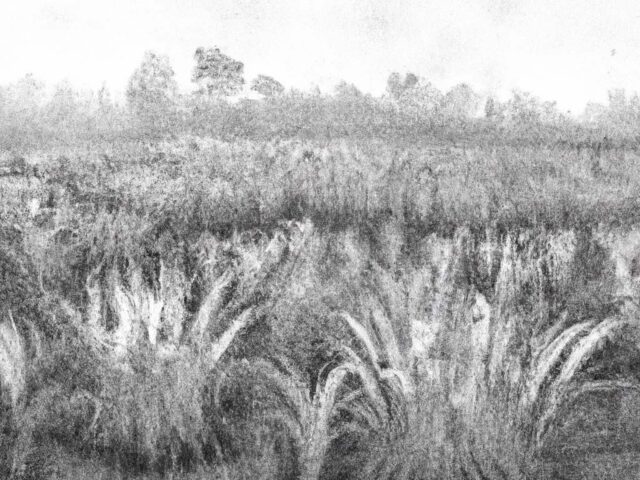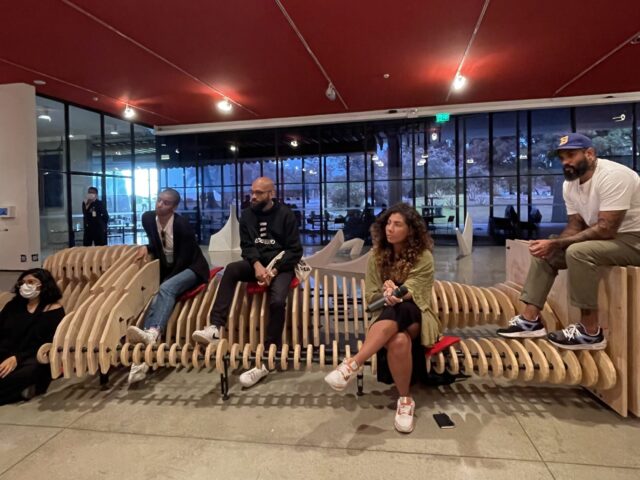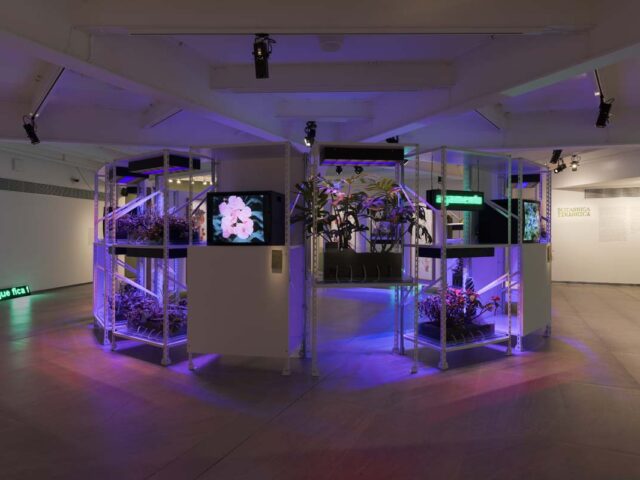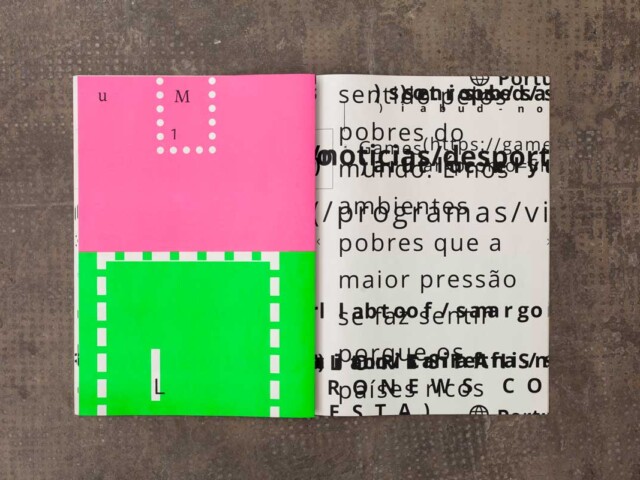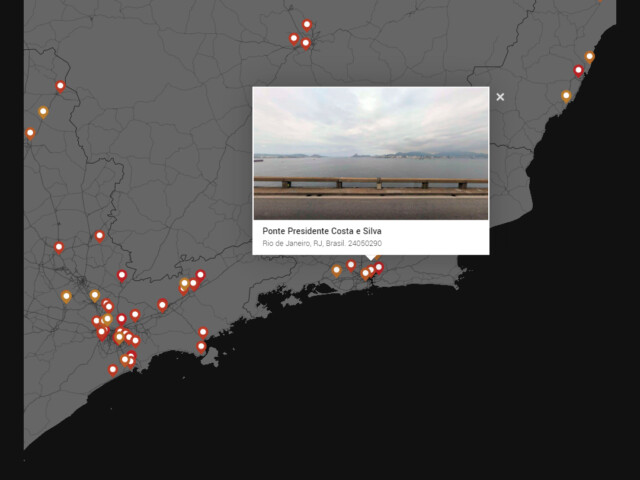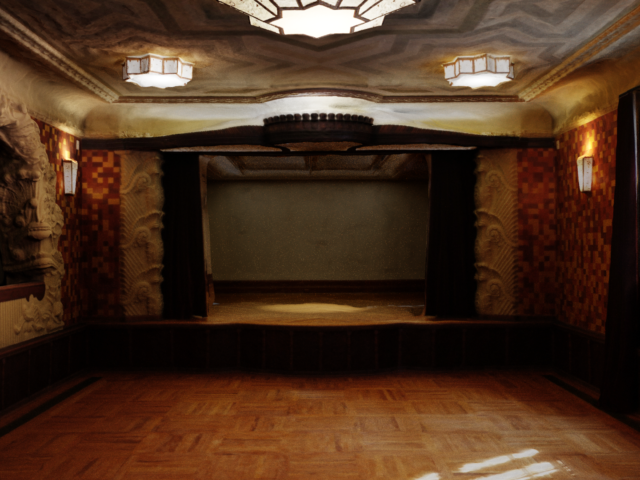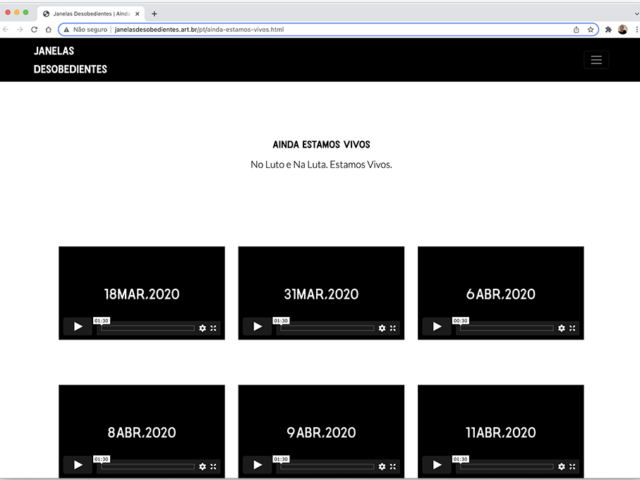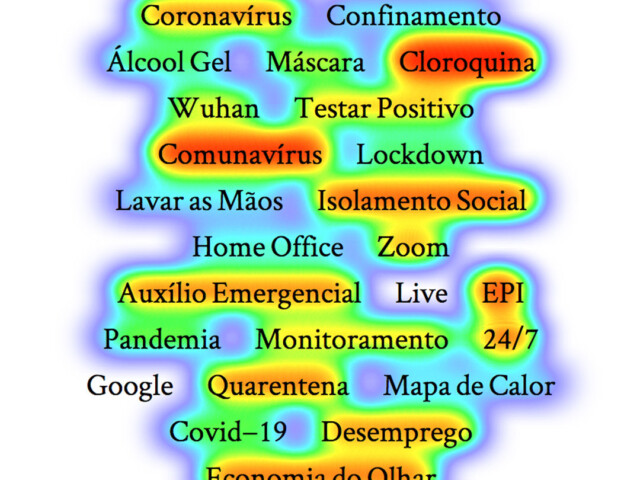Project Details
Categories
audiovisual, exposições | exhibitions, Glitch
Date Added
agosto 26, 2014
Project Brief
Cinema Lascado (Chipped Movie) is an ongoing video project by Giselle Beiguelman. It portrays devasted urban landscapes, where elevated expressways produced social fractures in the cultural territory of the cities in which they were built. Till now it focuses on the Minhocão (“Big Worm”, officially the Costa e Silva elevated expressway) in São Paulo and the Perimetral (elevado Negrão de Lima), in Rio de Janeiro. The first one was built in 1969, in the context of the Brazilian Dictatorship government. The second one was built in the 1950s, in the Bossa Nova period, and was imploded recently in 2014. Both are huge expressways, scars in the urban tissue of those cities. I presented a short trailer of the Perimetral movie at the Sao Paulo Architecture Biennial last year. Recently, in the Digital Latin America Show, I presented for the first time the duo-channel video installation. The audience is invited to cross the viaduct in an unusual way, since they run it from above and from below and on the other side watch its implosion.
Here images follow one another by a movement of scanning the landscape. The result is a series of sequences that deconstruct the space to be recreated as visual noise, guided by the predominant colors of the surroundings, revisiting the surrealist notion of Convulsive Beauty and the Glitch aesthetics. Cinema Lascado mixes hi-tech and low, the sordid and the sublime, combining HD video with the technique of animated GIF – the first moving image format on the web – and the browser instability. In and intermitent way, it plays with saturation and suppression to reconstruct the perception of the surroundings and the city, the old and new, the up and down, the tool and the device.
Trailer
Presented at: 516 Arts at Digital Latin America Show in Albuquerque (NM, USA); 13 São Paulo Architecture Biennial; Cinema Lascado (Caixa Cultural, São Paulo, 2016)
